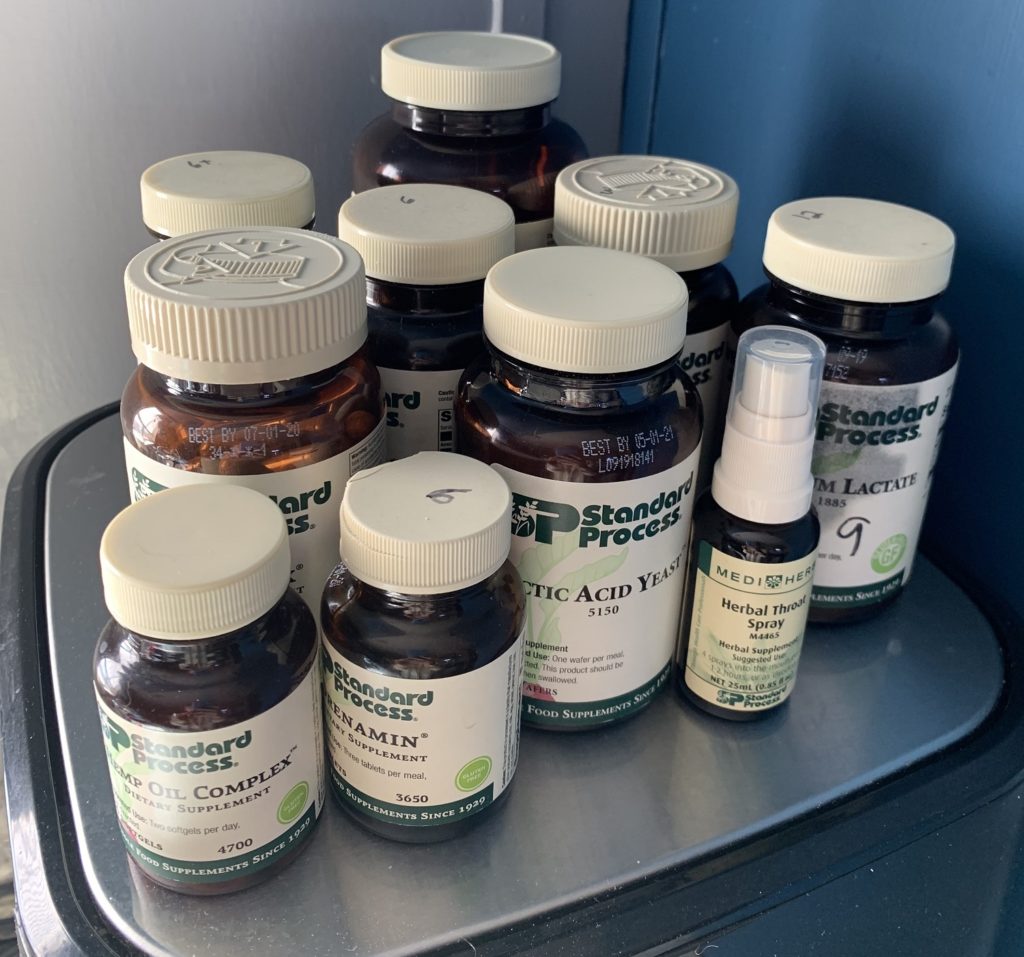I remember my health class professor talking about the need for vitamin supplements back when I was in college many years ago. We were in the vitamin and mineral section of our coursework, learning about the different nutrients the body needs, and the professor explained that we can’t get all of these nutrients from our diet alone. When a student asked which multivitamin the professor recommended, her answer shocked the whole class. She couldn’t recommend any multivitamin! Most multivitamins, she explained, are full of synthetic nutrients, which your body typically excretes in urine. Even the expensive brands do little good. Basically, you’re paying for expensive pee.
That’s why I call the “multivitamin” the unicorn of supplements. The idea of a perfect one-stop-shop pill packed with each and every specific vitamin and mineral the human body needs is wonderful in theory, magical even. Yet it just doesn’t exist.
And if you think about it a bit, it’s not so hard to understand why. We’re all different. Every. Single. Person. While all human bodies need the same materials to build and sustain healthy cells, bones, tissues, and organs, we also have individual needs. These can change at any given time, and they inevitably vary from person to person. So how could one mass-produced pill meet the needs of each individual body—especially if that pill isn’t made from actual food?
If I’ve just shattered your myth of a unicorn multivitamin, what do you do next? Back in that class, I remember feeling so stressed and overwhelmed by her words. How was I supposed to know what my body needed? Or figure out which supplements to take? If the wrong supplements could even hurt me, what on earth was I supposed to do?
Like most of us, I didn’t have the time, energy, or frankly the desire to start researching all the conflicting information out there. So I gave up. I simply resolved to eat as best I could and let the rest be. And sadly, I’m pretty sure that I’m not the only one.
But then, a few years later, I was fortunate enough to start working for SRP. This is when I learned a monumental fact about how to find the right supplements for me. Turns out, I didn’t need to figure it out all on my own! I didn’t have to become an expert in nutrition or even my own body. I didn’t need to research all the different supplement companies out there. There are already people who do that for you—people who are far more trained in nutrition and health than I. Who are they? Are you ready for it?
Holistic practitioners.
Seriously, it was as easy as making an appointment with a holistic practitioner in my area. I’m lucky to live close to Lynn Mayer, CNC. In just one appointment, she had me fill out a health questionnaire extremely specific to my body. After that, she gave me an exam and tested me on a Heart Sound Recorder, an incredible tool that’s classified by the Food and Drug Administration as a general wellness device. It uses your heart rate, rhythm, and tone to determine your nutritional needs. Compiling all that information, she came up with a specific supplement regimen tailored to my body’s needs. She even took  into account my pregnancy at the time, so while I was getting what I needed, my baby was too.
into account my pregnancy at the time, so while I was getting what I needed, my baby was too.
Goodbye generic, synthetic, headache-inducing prenatal vitamins. Hallelujah! (If you’re interested in learning more information on prenatal nutrition, check out Prenatal Nutrition and Birth Defects. It’s an absolute must!)
Now there’s one more incredibly important thing I want to share about this story: the type of supplement you take matters. That same professor I mentioned above told us to be very careful about the supplements we buy. Most are made with synthetic chemicals—not food. These synthetic chemicals can be toxic, and rather than correct your body chemistry, they can cause imbalance. That’s why it’s best to take only whole food supplements. For myself, I take the incredibly high-quality whole food nutritional supplements from Standard Process. They grow most of the food for their supplements on their own organic farms. (Check out their organic farming videos!)
Your supplements should be easily available to you through your local holistic practitioner or a chiropractor trained in SP nutrition. After your exam, your practitioner will tell you exactly what SP products you need, and how much of each. It seriously couldn’t be any easier. I have my SP bottles in my kitchen, all labeled with how many I need to take per day. All I have to do is grab them with each meal. Voila!
I cannot begin to describe the peace, joy, and health I have in knowing that I’m taking the right supplements for my body. Sometimes I almost get giddy when I pass the supplement aisles at my stores, knowing there’s nothing there I need. I’m all set.
Discovering what your body needs is literally a phone call away. Find your local SP provider, make an appointment, and let me know how it goes in the comments! I’m so excited for you!
Image from iStock/julos (main), Supplements (from Danielle LeBaron), HSR (from Selene River Press).


